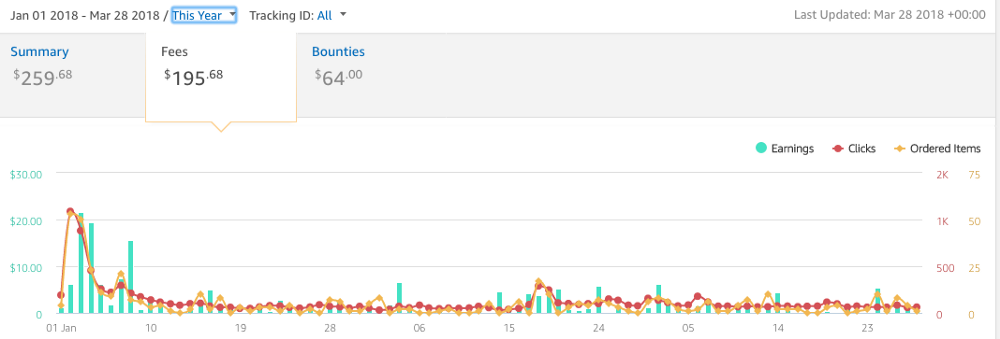 Writing is an excellent online business to embark on, but it takes time and planning to make it happen. One reason people decide to give freelance writing a shot is that it's easy to do if they’re an excellent writer and if job opportunities are available. The flexibility of writing in one’s home is also appealing. There are many ways to earn money online, but some ways are better than others. It's best to learn through experience, but hearing about other writers' successes and failures can prevent errors of your own. We cover more on how to create a successful business online during our free webinar training, whether it’s by writing or producing a profitable website. Below are 3 ways to earn money online as well as 2 ways that best be avoided.
Writing is an excellent online business to embark on, but it takes time and planning to make it happen. One reason people decide to give freelance writing a shot is that it's easy to do if they’re an excellent writer and if job opportunities are available. The flexibility of writing in one’s home is also appealing. There are many ways to earn money online, but some ways are better than others. It's best to learn through experience, but hearing about other writers' successes and failures can prevent errors of your own. We cover more on how to create a successful business online during our free webinar training, whether it’s by writing or producing a profitable website. Below are 3 ways to earn money online as well as 2 ways that best be avoided.
Have you tried implementing Amazon affiliate links? If you haven’t it may be something you want to consider. It turns out it can be quite profitable and Kristina Wagner from The Mission dishes on how to strategically incorporate them into your content:
I’m amazed how few writers are doing this.
In about 90 seconds, you can register with Amazon’s affiliate program (just insert your bank and tax information because Amazon deposits your earnings directly into your bank).
After that, you can paste links to any product on Amazon, and get anywhere from a 3% — 10% cut if anyone buys the product from your link.
Here’s an example of my earnings:
This is how much I’ve earned this year so far (top left). I exclusively link to books I quote in my articles, and I average about $100/month or so. Books aren’t that expensive, so I don’t earn a lot, relatively speaking (but it’s a lot if you only earned $40 in your first 4 years!).
Amazon affiliate links can be extremely lucrative, though. For instance, you could post an article like my friend Tim Denning did, reviewing purchases under $100 and linking to the products.
Another example: uber-successful entrepreneur Tim Ferriss sends out a weekly email with his “favorite purchase of the week.” Sometimes it’s a nutrition bar, sometimes it’s expensive workout equipment. A growing email list is an excellent audience for those links.
With Amazon affiliate links, you get a cut from everything. They’re simple, subtle, unobtrusive, and very lucrative if done right.
Of course, being successful requires learning the craft of the trade and applying it. That’s why Huffington Post recommends taking classes and reading up on how to improve your skillset. You can further hone your craft by attending our free webinar training as well.
As writers, we need to learn our craft in order to earn an income. Whether you write fiction or nonfiction, there are important skills you need to develop in order to succeed.
There are many ways to learn. You can learn by trial and error, for example. This is a slow way of acquiring skills. And it can be disheartening.
Or you can tap into the knowledge and experience of successful writers who have broken through and created a career as a writer. The best way to fast-track success is to join courses and add particular skills to your portfolio.
Some aspiring writers don’t want to embrace the learning curve which making a living as a writer demands of us. This attitude will most likely result in failure.
The writer on Life Hacker is blunt about what it takes to be a successful writer. Being and staying successful means writing regularly and pushing through writer’s block. Otherwise, you may lose your skillset over time, and that’s not ideal if you’d like to make a living as a writer.
I had a friend who wanted to be a painter. “When I move to Paris I'll finally be able to paint,” she said. She never moved to Paris. Now she's a programmer and hates her job. I have another friend who has been working for 30 years on one novel. She keeps hating it and rewriting it. She can't get a publisher interested. She only writes when she's inspired. She needs writing groups to push her along.
I get it. I get writer's block also. But writing is a muscle. I used to play in chess tournaments a lot. I was ranked a master. And then I got busy with other things. So my skill level has dropped. It would take me a good six months of studying, three hours a day to just get back up to my old skill level. If you don't write every day, you won't know what your potential skill level is. You will be producing sub-par work. And in a world where 15 million books will be published this year, your book will have little chance to shine.
It doesn't matter if you write good stuff or bad stuff every day. Yesterday, for fun, I wrote about how much I enjoyed bowel movements. Will I publish that? I hope not! It was awful! But I wrote because that's what I wrote yesterday. 1500 words about bowel movements. Mission accomplished.
Do the math: if you just write 1,000 words a day that are publishable then you have a book every two months. 1,000 words a day is not easy. But it's not hard either. This post is 1,800 words so far and I started 20 minutes ago. I'll spend many more hours rewriting it than writing, it but once you start exercising the writing muscle (start with 200 words a day, then 300, etc.) you will get up to 1,000.
Rewrite Every Day
See above. I feel better about the words I take out then the words I write. First, you have a block of stone, then you make a sculpture, then you chisel and fine tune until you have a work of art. Art is born from the rewrite, not from the typewriter.
With Choose Yourself! I kept rewriting obsessively. One time the book was all finished and sent to editors, designers, etc. Then I did the audio version. KABLAMO! Any paragraph that made me feel like, “Ugh, I'm too bored to read this out loud,” I noted. Then I went back home and rewrote the whole book again. And the audio version veered so much from the book it was completely unabridged. Everyone hated me. But I liked the final result much better. Read your work out loud and cut out anything that makes you lag.
The Mission discusses one of the worst ways to earn money, which is writing books on the web. Now you may disagree, but the author has a fairly compelling argument as to why that’s the case. He does tell us how writing a book can help in other ways, however.
The ultimate dream of many writers doesn’t come with a lot of money.
Prolific author James Altucher has written nearly 20 books. In his most recent, Choose Yourself, he confirmed that actual book deals didn’t make him a lot of money. He explained he earned about $50,000 total from one of his best-selling books — nothing to scoff at, but no fortune, either.
I recently signed my first book deal. It feels amazing. I’m going to be a published author!
But I’ve learned that an average cut from traditionally-published books is only about 10% — 15%. Even with a modest advance, that’s not a lot. Self-publishing can be more lucrative, but even selling 10,000 books (a monumental feat for most new writers) at $10 will only give you around $50,000 after taxes, royalties, and cuts from places like Amazon.
A top-tier, high-quality book takes a long time to write; some of the best full-time authors I follow can only publish 1 book per year.
Writing books obviously isn’t a bad idea. But in terms of earning income, they’re one of the least viable options.
The most important truth I’ve learned about books is that they’re a platform to earn income from other projects — related online courses, coaching, and seminars, etc.
If writing isn’t your thing then making it as a writer probably isn’t going to work out in the long run. Obviously making money as a writer isn't going to work for you if you hate writing or you discover that writing a bunch of articles every day is taking a lot more time than you originally thought. Writers in Charge explains how this factor can either make or break your writing career:
The most critical factor that will help you determine if you will never be successful as a freelance writer is if writing is not your thing.
By “writing isn’t your thing” I’m not trying to say that you suck at English or that you don’t know how to write a sentence. In fact, that is the least of the signals to show if you truly can be successful as a freelance writer since everything can be learned.
Another thing is that you don’t need to have a degree in English before you can succeed as a freelance writer. What I know is that the English language can never be completely learned so there shouldn’t really be any problem for you if you have the passion and desire to keep on improving as far as the language is concerned.
The problem I’m talking about, however, is that of finding writing extremely boring whenever you decide to take a pen. Maybe you prefer to play games instead?
There’s no need to think about this, and you should have been able to figure yourself out by now. If you’re one of those people who sleep a few minutes after taking a pen, or if you’re one of those people who has always detested creative writing then you probably would fail as a freelance writer.
Now that you know about three ways that'll help you make it as a writer and two ways to avoid or that tell you writing isn't your thing, learn more on how to make money online by attending our free webinar training. Our webinars fill up fast, so reserve your spot today!
Sources: The Mission, Huffington Post, Life Hacker, Writers in Charge
[adrotate group=”5″]
CHALLENGE Yourself to Profit!
Free Download: Build Your Profit-Generating Online Business With This Free Blueprint
Sign Up, follow the easy steps and You'll get the tactics, strategies & techniques needed to create your online profit stream. It's free!
[adrotate group=”6″]


